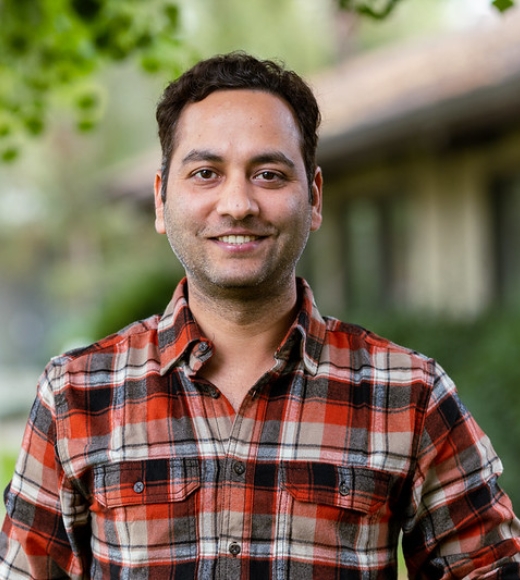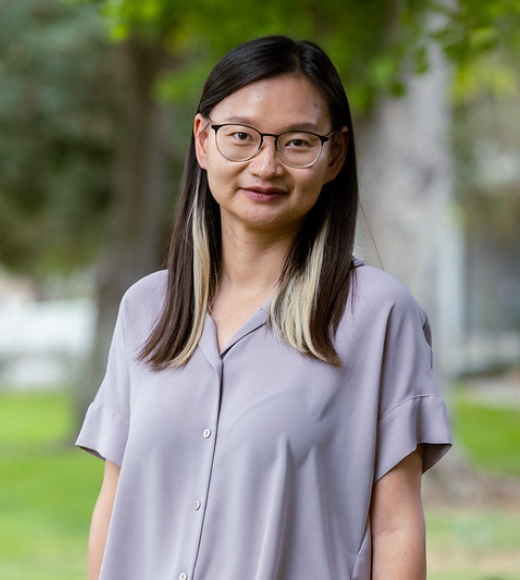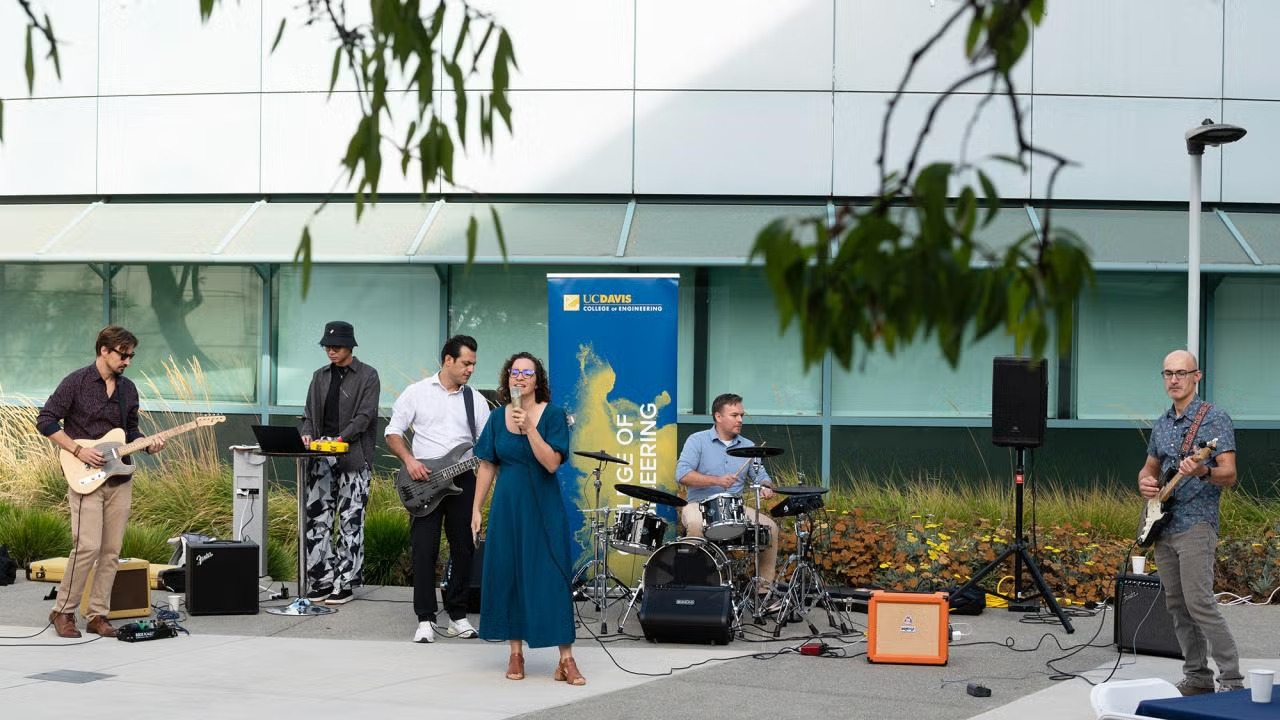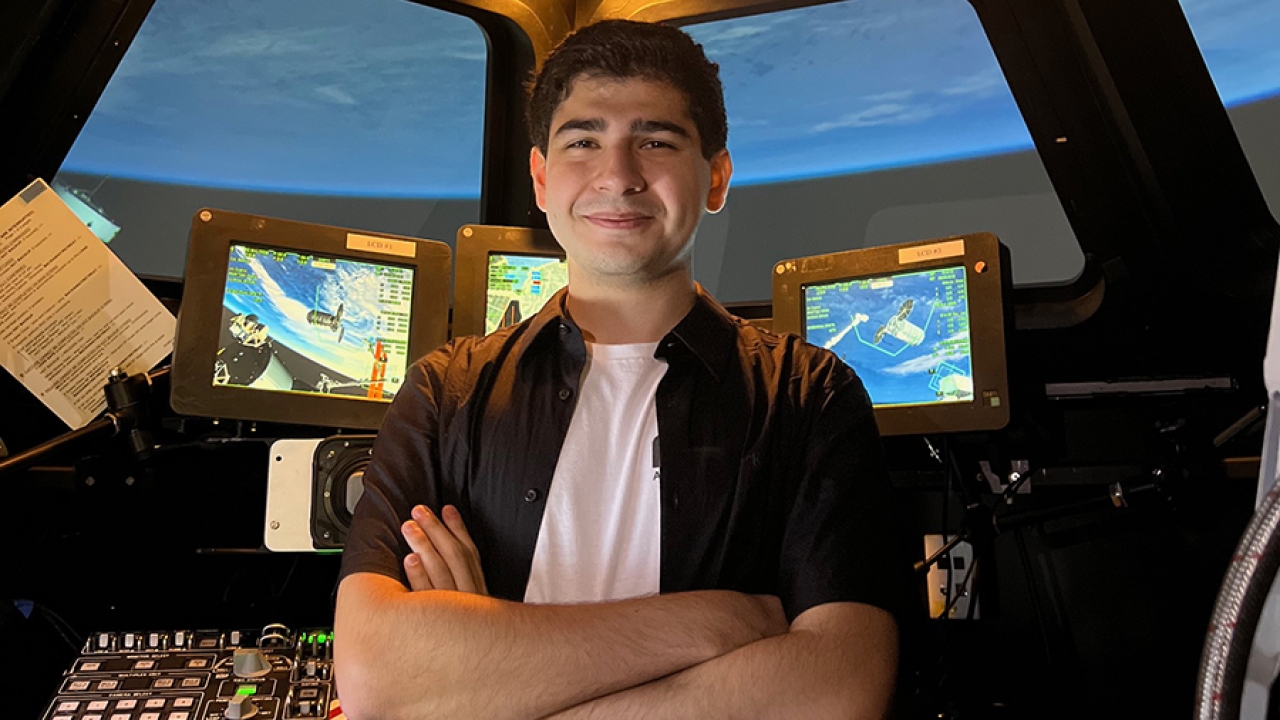Meet the Postdocs: Manohar Prasad Bhandari and Qing He
Postdoctoral scholars make significant contributions to research and discovery
In honor of UC Davis’ Postdoc Appreciation Week, celebrated Oct. 23-27, 2023, the College of Engineering recognizes the more than 70 postdoctoral scholars making significant contributions to research, discovery and our commitment to engineering a better world for all.
This year, we are shining a spotlight on the high-impact work of two postdocs: Manohar Prasad Bhandari and Qing He. In addition to their research, Bhandari and He are campus leaders, serving as officers in the UC Davis Postdoctoral Scholars Association.
Manohar Prasad Bhandari

Originally from Nepal, Manohar Prasad Bhandari came to UC Davis after completing his Ph.D. at the University of Brescia in Italy and postdoctoral researcher positions in Israel and Latvia. Bhandari’s interest in staying in academia and years of experience with chemical sensors, metabolomics and volatile organic compounds, or VOCs, analysis informed his decision to explore a postdoctoral role at the Bioinstrumentation and BioMEMS Laboratory, led by Professor of Mechanical and Aerospace Engineering Cristina Davis.
“It was exactly aligning with my research interests and background,” Bhandari said of the position, while also acknowledging the university’s profile and cutting-edge research as motivating factors.
Bhandari’s Ph.D. research was focused on the application of a custom electronic nose, a sensor device that can detect VOCs. Initially, he used the advanced sensor technology for food quality control of Italian food products like extra virgin olive oil and Parmigiano-Reggiano cheese. Since then, his focus has been on using the biosensing technology combined with metabolomics, biomarker profiling and machine learning for a range of applications, including disease diagnosis, environmental monitoring and even national defense.
At UC Davis, Bhandari works in the clean room at the Center for Nano-MicroManufacturing fabricating chemical sensors known as micropreconcentrator chips. These chips can be used across several disciplines. In healthcare, for example, they can support a noninvasive, rapid, portable device for breath analysis to detect disease in its early stages.
Beyond his postdoctoral responsibilities, Bhandari enjoys biking around UC Davis’ sprawling campus, traveling and spending time with family. As treasurer of the Postdoctoral Scholars Association, he connected with a community and has been instrumental in creating it for others by facilitating events, activities and resources. He also oversees the association’s travel grant awards, of which 24 are distributed to postdocs each year.
“Being a postdoc is not always easy,” said Bhandari. “We are playing our part in making this world a better place, being scientists, dedicating ourselves to long hours in the lab, to contribute to humankind at large.”
Qing He

Qing He agrees that postdocs are a vital part of UC Davis’ research community.
“Postdocs bring a wealth of knowledge, fresh perspectives and a vibrant energy that enhances the research environment,” He said. “Our role in pushing the boundaries of research, mentoring students and contributing to the academic community is indispensable and should be acknowledged and valued.”
As a postdoctoral scholar in Associate Professor of Biomedical Engineering Randy Carney’s lab, He brings degrees in hydrology and hydropower engineering, mechanical engineering and agricultural and biosystems engineering and a strong fascination with biosensor technology to her research. He explores the field of liquid biopsy for cancer diagnosis with a focus on utilizing Raman spectroscopy of extracellular vesicles, or EVs, extracted from patients.
“This research propels us toward a future where cancer diagnosis can be both minimally invasive and maximally informative,” explained He, who noted the innovation is an economically viable approach that could make cancer screening accessible to everyone. “The far-reaching impact of such a development is significant: By making early cancer detection easier, we have the potential to prevent many deaths and, in turn, ease the enormous pressure on healthcare systems worldwide.”
Having completed her Master of Science degree and Ph.D. at Iowa State University in the college town of Ames, Iowa, coming to Davis felt familiar to He. Paired with the institution’s innovative research, reputation, resources and deep commitment to collaboration, UC Davis was a perfect choice for the next step in He’s professional journey.
Outside of work, He enjoys cooking and hiking and serves as vice chair of the Postdoctoral Scholars Association, a role she described as “tremendously rewarding.”
“It provides a wonderful platform for collaboration, information exchange and support among postdoctoral researchers, ensuring a wholesome postdoctoral experience.”




